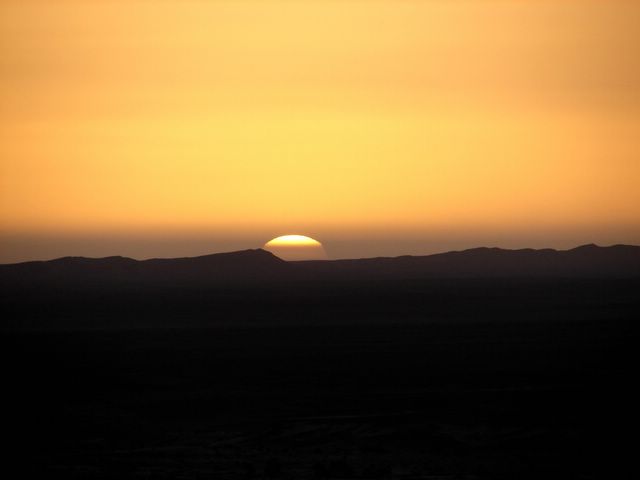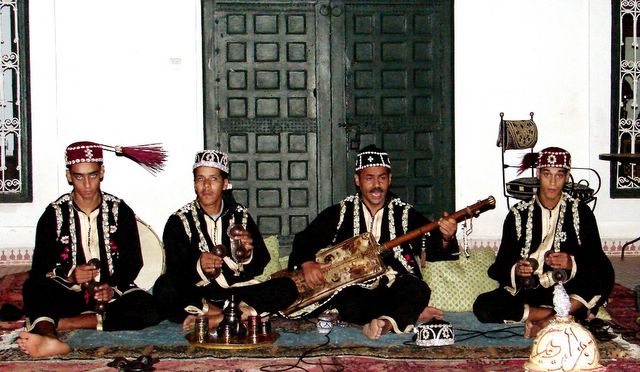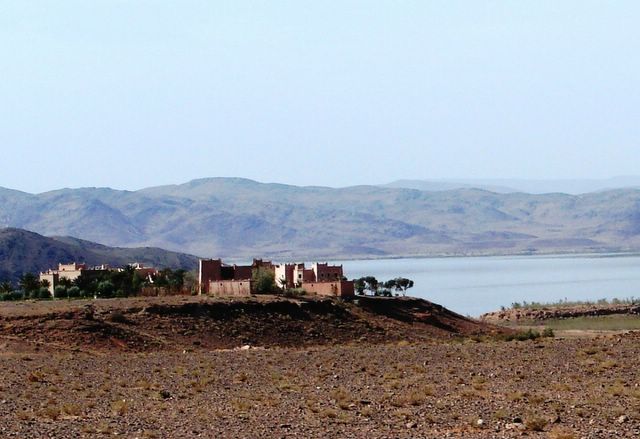Arab Human Development Report
"Freedom in its comprehensive sense, incorporates not only civil and political freedoms (in other words, liberation from oppression), but also the liberation from all factors that are inconsistent with human dignity"
.jpg) After a six-month delay, the Arab division of the UN Development Program (UNDP) released its annual Arab Human Development Report. This followed a series of squabbles with the Bush administration who objected to some of the language included in the report. The administration particularly objected to references made in the report about the deteriorating human development situation in Iraq caused by the US invasion and subsequent occupation. The US administration even threatened to withdraw funding for the program if the language it objects to were not removed. This fits the pattern of an administration that can not and will not admit its mistakes nor will take responsibility for its actions. The administration is happy to fund critical appraisals of other governments and support unambiguous calls for reform as long as it is portrayed as the perfect messenger of God who is always right and hardly ever at fault.
After a six-month delay, the Arab division of the UN Development Program (UNDP) released its annual Arab Human Development Report. This followed a series of squabbles with the Bush administration who objected to some of the language included in the report. The administration particularly objected to references made in the report about the deteriorating human development situation in Iraq caused by the US invasion and subsequent occupation. The US administration even threatened to withdraw funding for the program if the language it objects to were not removed. This fits the pattern of an administration that can not and will not admit its mistakes nor will take responsibility for its actions. The administration is happy to fund critical appraisals of other governments and support unambiguous calls for reform as long as it is portrayed as the perfect messenger of God who is always right and hardly ever at fault.
Ironically, the attitude of the US administration, which played into the overwhelming perception in the world that this administration is trying to manipulate and control international institutions and programs to its advantage, strengthened the credibility of the report within the region. The authors of the report explained that the controversy may have actually given them a degree of legitimacy among Arabs, who might have otherwise dismissed them as apologists for American views. I also would like to add that this report was researched and written by some of the most forward-thinking and progressive intellectuals in the Arab world. If the US administration is at odds with their views, then one can safely say that no amount of public diplomacy by this administration can reverse its negative image in the Middle East.
Nonetheless, the UNDP finally released the report under its own name, after threatening to publish it through a private company. It did so with a disclaimer stating that the original language was essentially intact, although some terms may have been softened.
The Report concludes that:
"The situation of freedom and good governance in the Arab world ranges from deficient to seriously deficient. Despite sporadic improvements in the human rights situation in some Arab countries, the overall human rights picture in the Arab world is grave and deteriorating. The freedom and human rights of Arabs under occupation, particularly in Palestine, are being seriously violated. Even in independent Arab countries, there is a serious gap in freedom and good governance.
Authoritarian regimes severely restrict freedoms and the right to political participation and civil activity to ensure that no opposition arises to challenge their unrepresentative form of government. Constitutional rights are also violated as authoritarian regimes take control of the law and manipulate it to reinforce their grip on power and serve their own interests.
At the regional level, the Arab populations under occupation, particularly in Palestine, are deprived of many of their basic freedoms and their human rights. This has a direct impact on the situation in other Arab countries, and provides authoritarian Arab regimes with the excuse of an external threat to postpone reform and movement towards more representative forms of government. Also at the regional level, authoritarian regimes form a mutually reinforcing network that helps each of them to maintain its political control.
At the international level, the privileges enjoyed by some of the major powers allow them to preclude the adoption of international resolutions that would uphold provisions of international law, thus contributing to the violation of human rights in the Arab region. Moreover, some of those powers have helped authoritarian regimes consolidate their positions by striking alliances with them if the regimes are perceived as useful in ‘war on terror’.”
The Report recommends:
"Arab countries must sign declarations, covenants and treaties that together make up international law, and incorporate these provisions into their constitutions and reflect them in their legal systems.
A gradual and negotiated transition of power to representative forms of government. The first step in the process would be to unleash civil society forces and allow the three key freedoms of opinion, expression and association—a move that would generate a dynamic debate on how to achieve the transition.
Arab intellectual, political and civil society vanguards must shake off their apathy and contribute towards creating an intellectual framework and atmosphere conducive to freedom and good governance. This should lead to the emergence of an elite representing all sectors of society to spearhead the movement towards an Arab renaissance.
Reforming the political system to allow full participation through free and fair elections, the results of which must be fully respected.
Separation of executive, legislative and judicial powers, with the independence of the latter institutionally guaranteed.
Basic freedoms should be enshrined in constitutions and legally safeguarded so that they cannot be diminished or even abolished by legislatures, which may reflect a “tyrannical majority” seeking to oppress a minority."
The Report's most pressing priorities:
The Report suggests immediate action to be taken to reform governance practices, addressing three key priorities: (1) abolishing the state of emergency; (2) ending all forms of discrimination against any minority group; and (3) guaranteeing the independence of the judiciary.
Click HERE for a PDF version of the Executive Summary of the 2004 Arab Human Development Report (AHDR2004).


























10 Comments:
I agree with the suggestions report makes for reforming the system. Two more things they should add - making steps towards normalization with Israel, and reforms in education - stop anti-Western propaganda. Otherwise, they are right on target!
April 06, 2005
I think the groups that are inciting passion against the West are doing a lot of harm, and are more influentual than should be the case. In a way, it probably has to do with the lack of freedom - some such groups are the only alternatives to the official regimes. Perhaps with the eventual liberalization of politics and greater freedom for the media, these "opposition" groups will lose their influence in favor of more tolerant and open-minded parties and organizations.
April 07, 2005
Thanks Jawad for such great reporting. Excellent points Irina and eman. I have a stupid question. Why is there so much press in the US about the anti Western propaganda in the Arab countries... Is it true or is it just b/c of the magnitude of the potential harm? Is the current administration capitalizing on the "fear factor?" Whatever it is, I just don't understand it. I'd like to. Is it true that Iraq gov't is now leaning toward the Sunni majority now that Sadam is ousted?
April 07, 2005
The media in general is saturated with bias. When watching Al jazeera I get the impression of watching an Arabic version of FOX news channel, two different agendas, same extremism. There's Al jazeera out there, but also alhurra (financed by American tax money), alarabia, LBC, MBC and the list is long.
Tell me what you believe I'll tell what you should see. Media outlets need to know their viewers well to make a buck. So who watch aljazeera, alarabia, alhurra..? Arab news junkies just like American news junkies watch CNN, FOX and the rest.
I think the Arab world is starting with democracy on the wrong foot (or is it the right one, you decide), Al Jazeera and its anti America/anti Israel agenda.
Bad timing for free press with this magnitude, bloody pictures, brute force, violence on daily basis and certain US foreign policy get you an immature teenager TV channel called Aljazeera causing more harm than good to everyone.
April 07, 2005
The problem is there's no alternatives to these channels. No one would have cared about that stuff if they had the kind of pluralism we are lucky enough to have here. We have bloggers, numerous newspapers, magazines, and other publications to provide us with alternative information. They have a much more limited viewpoint. If you recall, when the newspapers in the U.S. were starting out, they were far from the relatively professional publications we have here. And later on, we had much more of an issue with yellow journalism than we have now. European standards on objectivity are much more lax than hours, yet they have likewise developed a number of newspapers with alternative viewpoints. It's not surprising that the Arabic press is rather sophomoric, to say the least. However, if we keep those outlets shut, they'll never get started. What we need to do is help develop MORE outlets for moderate voices, rather than clamping down on the ones they have.
April 07, 2005
Irina: Since the early 1990s something called Satellite TV spread in the Middle East like wild fire. People in the Middle East get over 500 channels (a lot more than we have here). From American to European, to Asian. They get it all. Heck, they even get FOX News!!! BTW, it is so cheap that you see sat dishes on every roof including in slum areas. In addition young people are spending every dime they have on time in Cyber Cafes. Recently they got DSL for very low prices (~$25 a month), which is affordable to many in the middle class (granted, many poor citizens can not afford digital media). Regarding, blogging, this is the fastest growing segment of internet activity in the Middle East. I think you'll be surprised to see how many MENA blogs are out there.
So this is not a question of Access anymore. It is now a question of choice, message, and outreach. I absolutely agree with your comment: "What we need to do is help develop MORE outlets for moderate voices, rather than clamping down on the ones they have."
Lauren: your question is actually a very good one and I don't think anybody can answer it fairly in 2 or 3 lines. So, let me jot down some ideas and make a post out of them this weekend.
Eman: We need your voice here because you actually live in the Middle East and can talk to the daily life of people in the region. So, I am very glad to have you participate. Can you please comment on my answer to Irina.
Nadir: You are right when you compared Fox News and Aljazeera and emphasized the commercial aspect of the TV business. "Tell me what you believe I'll tell what you should see." - I like that.
April 08, 2005
Probably blogging is the best way to reach anyone at this time. Networks, be they Fox News or CNN or anything else, are driven by profit. And people watch what's entertaining, though not necessarily true. Blogging may be a very subjective take on the news, but it's also much more independent than even newspapers, and the blogging world offers such a variety of viewpoints that it forces one to confront alternative mindsets.
April 08, 2005
Thanks for considering my question Jawad. I'll be on the lookout for your responses.
I agree w/Irina about blogs being an excellent resource for information. It is a powerful thing to be able to "chat" with someone (for example) from the Middle East and get a real conversation going. (A tete a tete of sort no one elses filters or bias getting in the way.)
It's pretty exciting to me because I believe that underneath the environmental conditioning and cultural backgrounds that we are all essentially the same. We all need essentially the same things. These unifying facts need to be focused on much more. Our differences are being pointed out ad infinitum.
Perhaps some of the myths and biases of the disgusting FOX news can be dispelled. I can't tolerate that channel and it sure as hell ain't "news."
The smaller the globe seems to get (due to communication and travel) the more I crave connections with the global community. I don't think I'm alone in that.
April 08, 2005
The Arab Human Development Report (AHDR) in its third consecutive year publication is an well received one for the specialists who are concerned about the region. The AHDR 2004 in this direction is an effort of advancement at the time when the whole region is burning under the American interventions as well as internal Civil Wars. These academic endeavors will definitely strengthen the local democratic forces against the pseudo democrats from the outside world.
Lakshminarayanan
Jawaharlal Nehru University
New Delhi
April 13, 2005
This comment has been removed by a blog administrator.
November 06, 2005
Post a Comment
<< Home